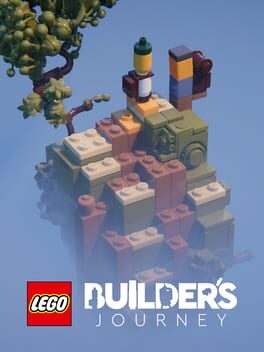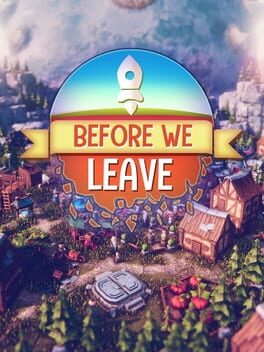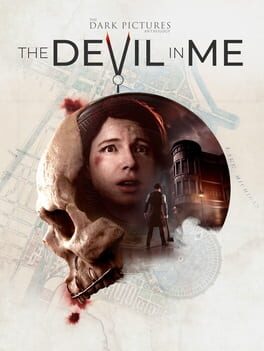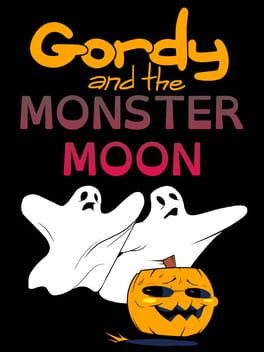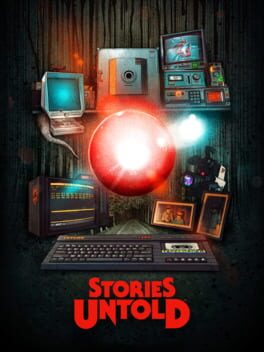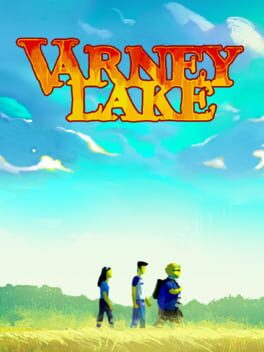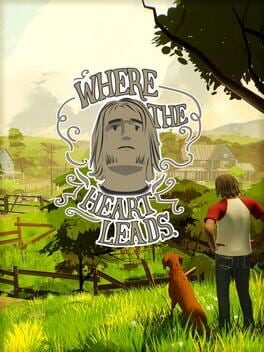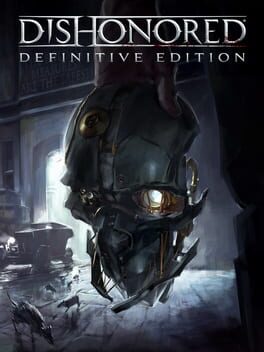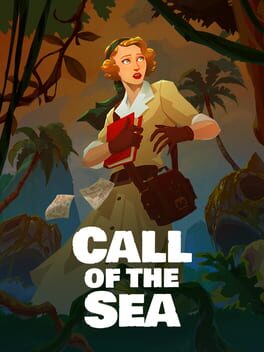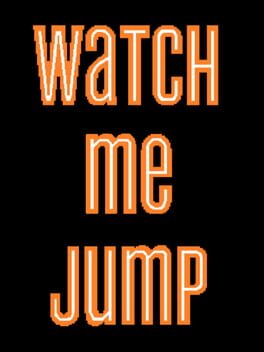CMike
BACKER
2023
Games like ALAN WAKE II aren't supposed to exist. Fraught development cycles, builds and ideas scrapped and started over and over. Stuck in a development loop. It's a recipe for disaster, no? The perfect storm to create a rushed, poorly executed mess that is a shadow of what the developers intended.
Remedy wasn't having any of that.
I always talk about how what I love most of all in art is when the artist takes a big swing. Leaves it all on the table. Remedy would settle for nothing less with the sequel to Alan Wake, telegraphing the swing like Babe Ruth stepping up to the plate and pointing beyond the outfield with 2019's Control. And I'm thrilled to say that they knocked it out of the park, just like they said they would.
ALAN WAKE II is an experience that requires all caps just to show how big it is. It is Remedy at its best, often over-the-top nonsensical but methodical and purposeful at the same time. There is gratuitous FMV, multiple albums' worth of original songs, a full Finnish short film that you can watch in the game, and probably more that I didn't even discover. It's flat out insane what Remedy poured into this game, and it pays off.
So few video games are confident enough to refuse to elaborate. There are bits of possible explanations as to what exactly is going on in Bright Falls and the Dark Place but nothing is ever definitive and is often contradictory. Thankfully Saga Anderson is here to keep us grounded and to provide the emotional core of the story. She quickly endears herself and I can't wait to see where her story goes from here. Saga is the perfect foil for the titular Alan Wake's absolutely unhinged side of the story. It goes to some delightfully bizarre places that you would never expect in such a dark tale as this.
The switch from action shooter to survival horror is perfect for the Alan Wake series. There are still the larger action setpieces you'd expect from Remedy but the quieter moments where you don't know what is around the next corner really amp up the tension more than the constant firefights of the first game. Those quiet exploratory parts are especially welcome because this game is absolutely gorgeous. There are so many stunning, offbeat locations in this game that had me wearing out the screenshot button on my controller. ALAN WAKE II has some of the best dramatic lighting I've ever seen in a game like this, fitting for the themes of the franchise. The first "overlap" section of the game in particular will be seared into my memory for a long time.
One of the central questions at the heart of ALAN WAKE II is this: is creating art worth it? With what it takes from us, what it gives, how it affects others? With the dark parts of us that it brings to light? "Don't write" say the walls, signs, and posters of the Dark Place. Thankfully Alan, and Remedy, and ourselves choose not to listen again and again.
Remedy wasn't having any of that.
I always talk about how what I love most of all in art is when the artist takes a big swing. Leaves it all on the table. Remedy would settle for nothing less with the sequel to Alan Wake, telegraphing the swing like Babe Ruth stepping up to the plate and pointing beyond the outfield with 2019's Control. And I'm thrilled to say that they knocked it out of the park, just like they said they would.
ALAN WAKE II is an experience that requires all caps just to show how big it is. It is Remedy at its best, often over-the-top nonsensical but methodical and purposeful at the same time. There is gratuitous FMV, multiple albums' worth of original songs, a full Finnish short film that you can watch in the game, and probably more that I didn't even discover. It's flat out insane what Remedy poured into this game, and it pays off.
So few video games are confident enough to refuse to elaborate. There are bits of possible explanations as to what exactly is going on in Bright Falls and the Dark Place but nothing is ever definitive and is often contradictory. Thankfully Saga Anderson is here to keep us grounded and to provide the emotional core of the story. She quickly endears herself and I can't wait to see where her story goes from here. Saga is the perfect foil for the titular Alan Wake's absolutely unhinged side of the story. It goes to some delightfully bizarre places that you would never expect in such a dark tale as this.
The switch from action shooter to survival horror is perfect for the Alan Wake series. There are still the larger action setpieces you'd expect from Remedy but the quieter moments where you don't know what is around the next corner really amp up the tension more than the constant firefights of the first game. Those quiet exploratory parts are especially welcome because this game is absolutely gorgeous. There are so many stunning, offbeat locations in this game that had me wearing out the screenshot button on my controller. ALAN WAKE II has some of the best dramatic lighting I've ever seen in a game like this, fitting for the themes of the franchise. The first "overlap" section of the game in particular will be seared into my memory for a long time.
One of the central questions at the heart of ALAN WAKE II is this: is creating art worth it? With what it takes from us, what it gives, how it affects others? With the dark parts of us that it brings to light? "Don't write" say the walls, signs, and posters of the Dark Place. Thankfully Alan, and Remedy, and ourselves choose not to listen again and again.
2020
2021
2021
2021
Disappointing. Starts out promising and has a few genuinely great moments, but those are few and far between in The Devil In Me's overly long story. There are way too many long sequences wandering aimlessly or fumbling around in the dark that grind everything to a halt. Long QTE sequences where a single mistake is punishable by death and arbitrary decisions with surprise fatal consequences make this the hardest of the Dark Pictures games as well, extra frustrating when the game is already so bloated.
I feel like this game is Supermassive giving in to some of their worst tendencies, and I hope they learn the right lessons from this misstep going forward.
I feel like this game is Supermassive giving in to some of their worst tendencies, and I hope they learn the right lessons from this misstep going forward.
I really liked this season a lot less than the first, which I already thought was pretty forgettable. I just want my spies to actually look like spies in this game, so dressing them up in some weird cyberpunk garb does nothing for me. Deceive Inc. needs some new maps desperately, and this season failed to provide any.
2017
I think this needed one more episode in between the first two to help the reveals towards the end have more impact. In any case, I really enjoyed the puzzles. Combing through documents for clues, fiddling with machinery, and playing off-screen text adventures ended up being much more engaging that I expected. Even if the story failed to land for me, I'm glad this exists.
2023
It would be easy to dismiss Where the Heart Leads as "we have Kentucky Route Zero at home" and leave it at that, but I think there's more going on here than the obvious influence KRZ had over this game.
The big draw for Where the Heart Leads is the massive amount of choices and outcomes that the game offers. It is genuinely impressive how many decisions big and small have a tangible effect on the way things can play out. The narrative itself is personal, never straying from the confines of the Anderson family and the small town of Carthage. Your choices as Whit define how his life and others play out over the span of a lifetime. Helping Whit navigate his and his wife's dreams and ambitions while also building a life for his young family led to some genuinely great and relatable moments, and the choices involved really made me sit and think about what I wanted to prioritize in Whit's life.
Though I do think that Where the Heart Leads illustrates the limits of this type of storytelling, prioritizing player choice over all else. Having all of these variables and branching paths is cool, but what meaning can there really be when all possible outcomes need to be satisfying in at least some way? Should I pursue a career that is more practical or one that is more fulfilling? Both paths are treated as reasonable, just different, smoothing over any truly hard consequences in service of this ethos. Sure, you can take things off the rails if you want to, but there's always an easily identifiable out given to get you back on track. In the end, the game's only real identifiable message seems to be a lackluster "your choices affect your life in a lot of ways."
In my playthrough, Whit Anderson lived a good life, and was a generally positive influence on the people around him. He took a few risks here and there, but in the end they all worked out. His kids turned out fine, even if they had a few struggles of their own. A life well lived, even if it was one without much to say, despite the pages and pages of text hoping to make me feel otherwise.
So, yeah, we have Kentucky Route Zero at home.
The big draw for Where the Heart Leads is the massive amount of choices and outcomes that the game offers. It is genuinely impressive how many decisions big and small have a tangible effect on the way things can play out. The narrative itself is personal, never straying from the confines of the Anderson family and the small town of Carthage. Your choices as Whit define how his life and others play out over the span of a lifetime. Helping Whit navigate his and his wife's dreams and ambitions while also building a life for his young family led to some genuinely great and relatable moments, and the choices involved really made me sit and think about what I wanted to prioritize in Whit's life.
Though I do think that Where the Heart Leads illustrates the limits of this type of storytelling, prioritizing player choice over all else. Having all of these variables and branching paths is cool, but what meaning can there really be when all possible outcomes need to be satisfying in at least some way? Should I pursue a career that is more practical or one that is more fulfilling? Both paths are treated as reasonable, just different, smoothing over any truly hard consequences in service of this ethos. Sure, you can take things off the rails if you want to, but there's always an easily identifiable out given to get you back on track. In the end, the game's only real identifiable message seems to be a lackluster "your choices affect your life in a lot of ways."
In my playthrough, Whit Anderson lived a good life, and was a generally positive influence on the people around him. He took a few risks here and there, but in the end they all worked out. His kids turned out fine, even if they had a few struggles of their own. A life well lived, even if it was one without much to say, despite the pages and pages of text hoping to make me feel otherwise.
So, yeah, we have Kentucky Route Zero at home.
I really loved the world and the ideas in Dishonored. I'm a big fan of games that give you the option to use stealth and a non-lethal approach, but the non-lethal approach here just isn't rewarding. There are limited options of how to take out enemies, and for the most part figuring out how to dispatch your targets without killing them is just a matter of talking to the right person.
Though disappointed that I didn't love Dishonored like I had hoped, I still had a pretty good time and was taken in by its world enough to be left wanting more.
Though disappointed that I didn't love Dishonored like I had hoped, I still had a pretty good time and was taken in by its world enough to be left wanting more.
2020
2018

